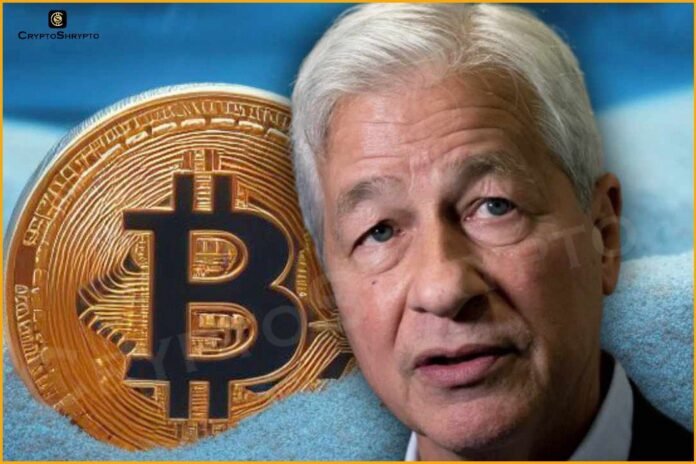JPMorgan CEO Jamie Dimon finds himself in the crosshairs of the cryptocurrency community on X (formerly Twitter) after BlackRock’s updated Form S-1 filing on December 29 revealed JPMorgan as an authorized participant (AP) for the proposed spot Bitcoin ETF.
Commenting on the revelation, Bloomberg ETF analyst Eric Balchunas highlighted the irony, stating, “BlackRock just dropped its updated S-1, and it DOES name the APs: Jane Street and JPMorgan (which is kinda ironic).”
Authorized participants are entities granted the right to create and redeem shares of an exchange-traded fund (ETF). In this case, BlackRock’s filing identified JPMorgan Securities alongside Jane Street as authorized participants for its Bitcoin ETF application.
The irony lies in Dimon’s public stance on Bitcoin. During a December 6 hearing of the United States Senate Banking Committee, Dimon voiced strong opposition to cryptocurrencies, stating that if given the authority, he would attempt to shut down the entire crypto space, asserting that Bitcoin’s “only true use case” is to facilitate criminal activities.
Crypto enthusiasts were quick to highlight the apparent hypocrisy, with one user on X suggesting, “Perhaps money laundering, tax evasion, criminal participation, and drug trafficking is their business as well.”
The criticism extended to JPMorgan’s involvement with Bitcoin despite Dimon’s negative remarks about the digital asset. Users questioned how the bank could participate in a Bitcoin-related endeavor after publicly expressing concerns about its alleged illicit uses.
Notably, JPMorgan, despite its public opposition to the broader digital asset sector, recently launched its own cryptocurrency token, JPM Coin, on a private version of the Ethereum blockchain for institutional clients. The bank also initiated a blockchain-based tokenization platform in October, with BlackRock among its clients, and participated in a $65 million funding round for Ethereum infrastructure firm Consensys in April 2021. The apparent contradiction in JPMorgan’s actions has ignited discussions about whether the bank’s involvement is an attempt to mislead the public or engage in gaslighting regarding its stance on cryptocurrencies.




